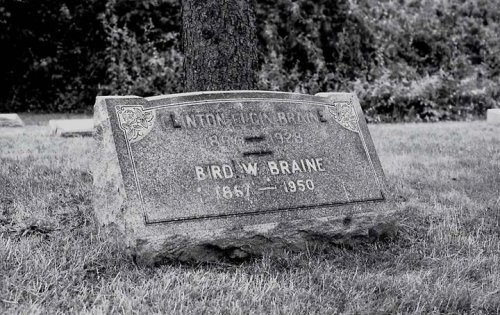In 1989, the Finnish news service Nuntii Latini began broadcasting the news in Latin.
Not to be outdone, in 1995 Finnish literature professor Jukka Ammondt recorded an album of Elvis songs sung in Latin. It includes Nunc Hic Aut Numquam (“It’s Now or Never”), Non Adamare Non Possum (“Can’t Help Falling in Love”), Cor Ligneum (“Wooden Heart”), and Tenere Me Ama (“Love Me Tender”).
“Two years later,” writes linguist Mikael Parkvall, “he followed up the success with the album Rocking in Latin, featuring classics such as Quate, Crepa, Rota (better known as ‘Shake, Rattle and Roll’).”
Lewis Carroll’s uncle Hassard Dodgson rendered one of his nephew’s poems into Latin elegiacs. Do you recognize it?
Hora aderat briligi. Nunc et Slythæia Tova
Plurima gyrabant gymbolitare vabo;
Et Borogovorum mimzebant undique formae,
Momiferique omnes exgrabuêre Rathi.
“Cave, Gaberbocchum moneo tibi, nate cavendum
(Unguibus ille rapit. Dentibus ille necat.)
Et fuge Jubbubbum, quo non infestior ales,
Et Bandersnatcham, quae fremit usque, cave.”
Ille autem gladium vorpalem cepit, et hostem
Manxonium longâ sedulitate petit;
Tum sub tumtummi requiescens arboris umbrâ
Stabat tranquillus, multa animo meditans.
Dum requiescebat meditans uffishia, monstrum
Praesens ecce! oculis cui fera flamma micat,
Ipse Gaberbocchus dumeta per horrida sifflans
Ibat, et horrendum burbuliabat iens!
Ter, quater, atque iterum cito vorpalissimus ensis
Snicsnaccans penitus viscera dissecuit.
Exanimum corpus linquens caput abstulit heros
Quocum galumphat multa, domumque redit.
“Tune Gaberbocchum potuisti, nate, necare?
Bemiscens, puer! ad brachia nostra veni.
Oh! frabiusce dies! iterumque caloque calâque
Laetus eo!” ut chortlet chortla superba senex.
Hora aderat briligi. Nunc et Slythæia Tova
Plurima gyrabant gymbolitare vabo;
Et Borogovorum mimzebant undique formae,
Momiferique omnes exgrabuêre Rathi.


